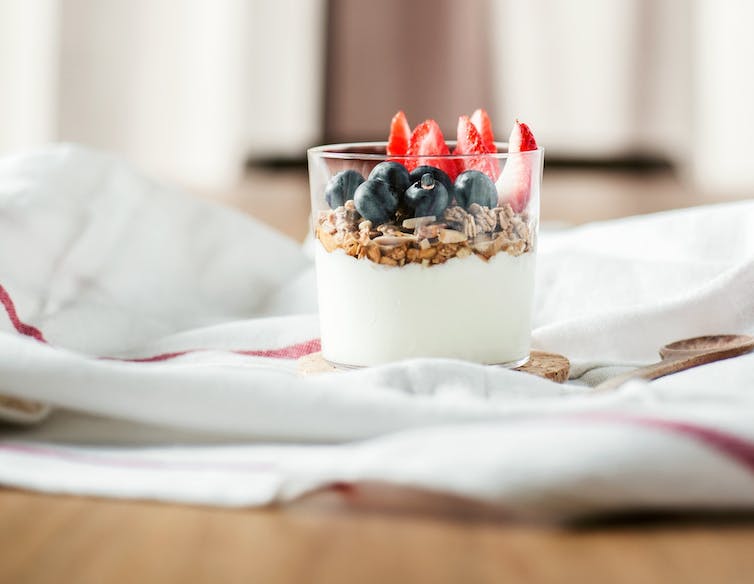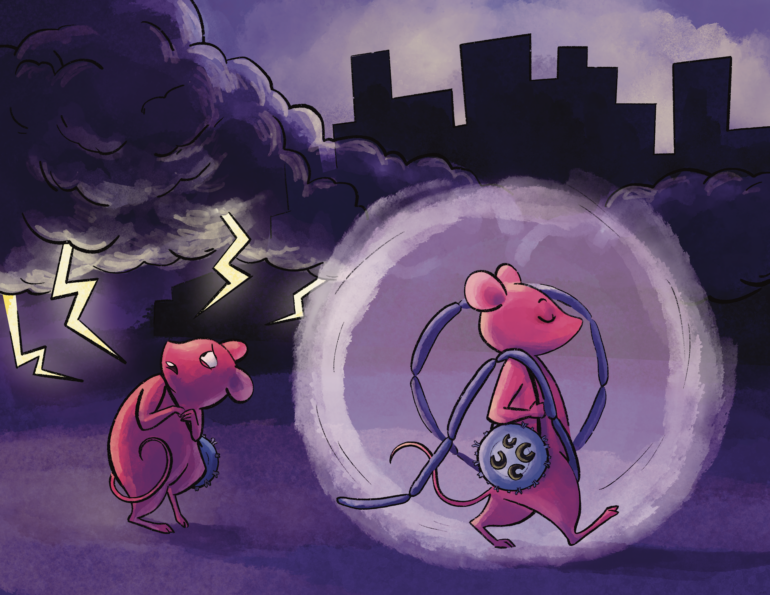Probiotics have been getting a lot of attention recently. These bacteria, which you can consume from fermented foods, yogurt or even pills, are linked to a number of health and wellness benefits, including reducing gastrointestinal distress, urinary tract infections and eczema. But can they improve your mood, too?
Behavior and mental health are complicated. But the short answer, according to my team’s recently published research, is likely yes.
The beneficial bacteria in probiotics become part of a community of other microscopic organisms living in your digestive system called the gut microbiome. Your gut microbiome contains trillions of a diverse range of bacteria, fungi and viruses.
Hundreds of species of bacteria are native to the intestinal tract. Each species can be broken down into hundreds of strains that can also be dramatically different from each other in their metabolism, byproducts and environmental preferences.
This bacterial diversity is why not all probiotics are built the same. Many research groups have shown that specific strains of Lactobacillus have mood-enhancing effects.
But these effects seem to happen only with the right mix of bacteria in the right conditions. For example, a probiotic that can reduce symptoms of stress in someone who is worried about their calculus final may not work in someone with symptoms of post-traumatic stress disorder.

The probiotics in your yogurt may play a role in boosting mood.
Tanaphong Toochinda/Unsplash, CC BY-SA
Studying mood in mice
In my work as a neuroscientist, I study how the gut influences the brain. My team and I recently conducted experiments in mice that support the idea that gut microbiota play a role in regulating stress.
So how do you measure the mood of mice?
First, we needed to understand how stressed mice behave. So we placed them under short periods of stress: They are restrained for two hours each day, given enough room to move around but not enough to groom or stand up. We envision this as the same type of stress people experience when they’re confined to a car or cubical for hours at a time.
Stressed mice soon exhibited depression- and anxiety-like behaviors, which we measured by monitoring how much time they spent hiding when placed in a new environment or how quickly they try to right themselves when flipped upside down.
While it isn’t surprising that stressed mice hide longer and are slower to right themselves, the power of their poop to change their behavior was.
To see if stressed behavior could be transferred through the microbiome, we used another group of mice that were entirely clean. These mice were free from any bacteria, fungi or viruses and lived in a rubber bubble. They essentially had no microbiome at all.
We exposed them to poop from either stressed mice or normal mice by sprinkling soiled bedding in their enclosures. Microbes from the donor mice started to populate the gut microbiomes…



